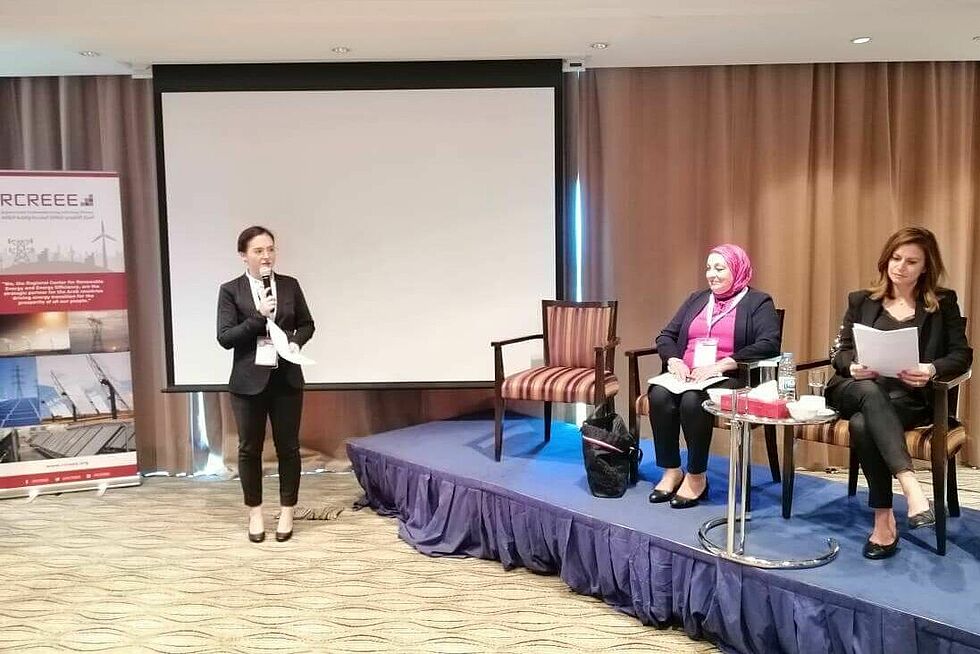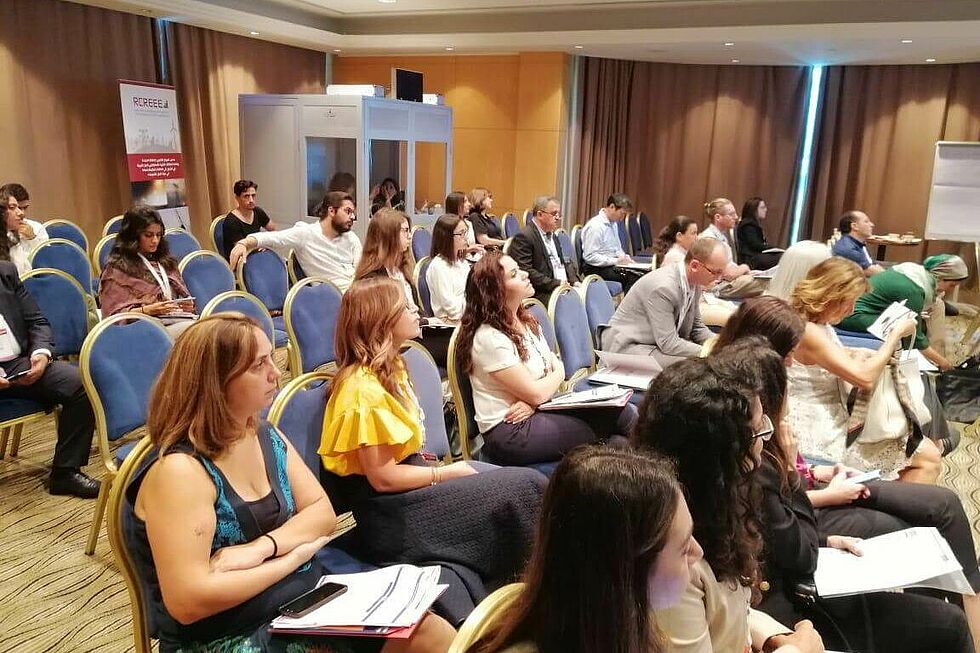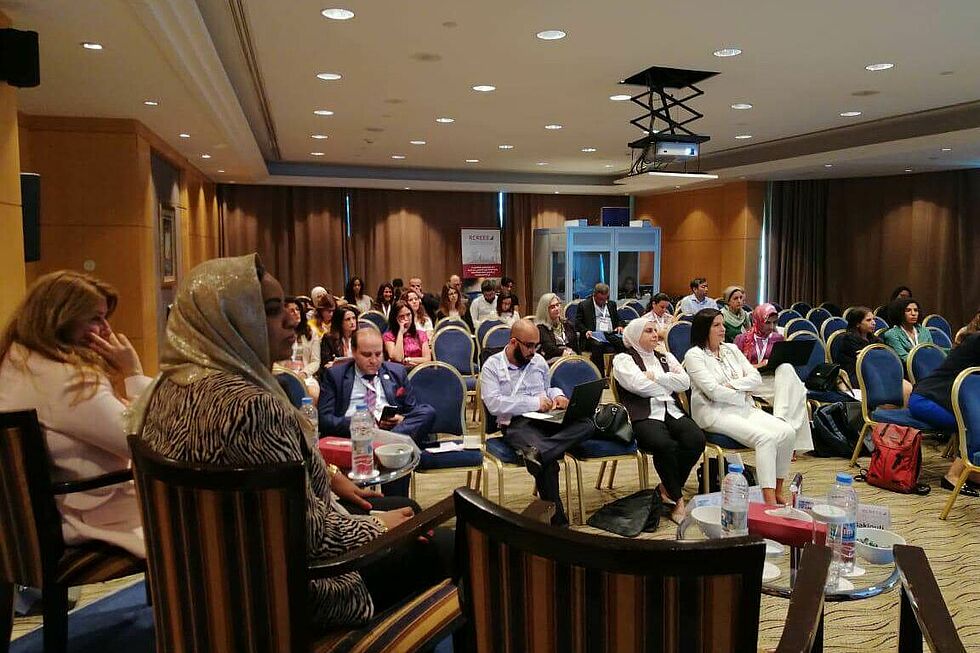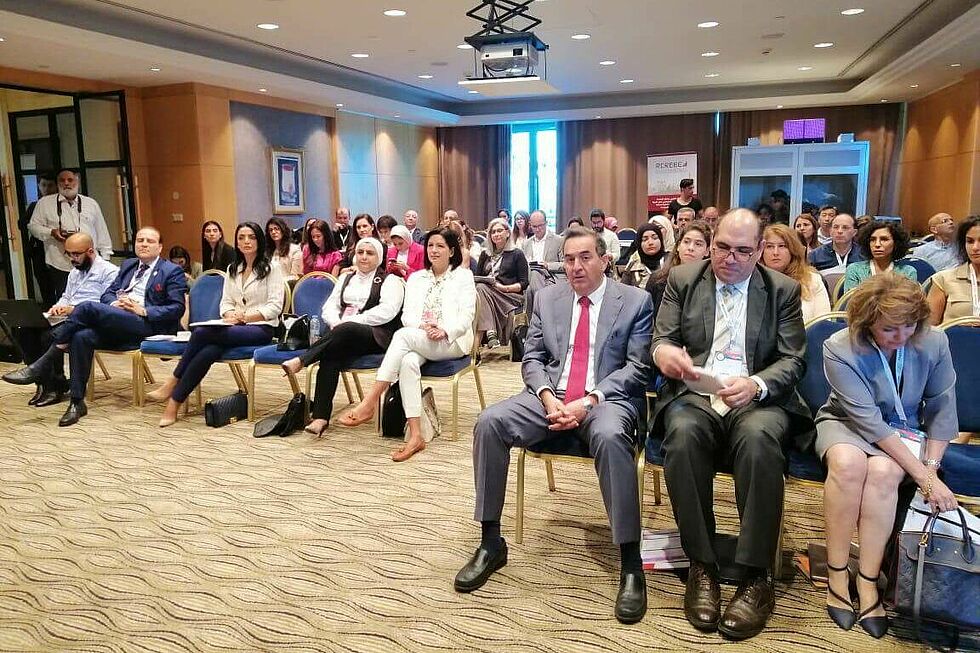FES at 10th IBEF: Enabling Women in Sustainable Energy Field
From 9/25/2019 until 10/25/2019 in Beirut, Lebanon
The Regional Center for Renewable Energy and Energy Efficiency (RCREEE) in cooperation with Friedrich-Ebert-Stiftung’s Regional Climate and Energy Project MENA organized a workshop on means to enabling Arab women in Sustainable Energy Field.
Held on the side of the 10th International Beirut Energy Forum, the workshop welcomed more than 50 attendees from the public sector, private sector, non-governmental organization, international funding institutions, and research centers.
Her Excellency, Ms. Nada Boustani Minister of the Energy and Water-Lebanon and Her Excellency Eng. Hala El Zawati, Minister of Energy and Mineral Resources in Jordan presided over the official opening session welcoming the audience and the regional speakers. Ms. Boustani and Eng. Zawati emphasized on great economic outcomes resulting from a diversified renewable energy workforce and thanked FES and RCREEE for bringing together this unique mix of females working in renewable energy.
RCREEE Executive Committee Chairperson, Eng. Maha Mostafa also delivered an opening remark.“International statistics and studies show that women skills are underutilized in renewable energy and energy efficiency fields. A coherent regional action plan and tailored national programs can unleash our region’s women potential and ensure they are presented as beneficiaries, suppliers, and managers of sustainable energy projects,” explained Eng. Maha Mostafa.
The Regional Climate and Energy Project at FES emphasizes the importance of women in sustainable energy, due to FES commitment to intersectional gender and climate justice. On behalf of Friedrich-Ebert-Stiftung’s Regional Climate and Energy Project MENA, Program Manager Ms. Ronja Schifer delivered an opening remark assuring “Women can play a crucial role in upscaling energy access in remote, hard-to-reach areas, especially in MENA countries, we at FES are very happy to partner with RECREEE and show this role.”
The workshop brought together a diversified mix of regional and international speakers and panelists from six countries (namely Tunisia, Sudan, Jordan, Egypt, Kuwait & Lebanon). The agenda covered several topics including the main challenges facing women in the sustainable energy sector in the region and main intervention areas recommend for a balanced and diversified sustainable energy workforce. The workshop showcased regional initiatives and efforts bolstering women’s involvement in energy sector featuring Kuwait Engineers without boarders’ activities, Lebanese Green minds NGO efforts and the Jordanian Renewable Energy & Energy Efficiency (JREEEF) gender policy. It also paid special attention to entrepreneurship by welcoming the co-founder of Artik Energy, an energy solutions startup in Sudan. The workshop dedicated its final session to current training opportunities designed for Arab young professionals youth & females. RCREEE presented its regional internship program, the Arab Program for Sustainable Energy Youth (APSEY). In addition, Global Women's Network for the Energy Transition (GWNET) mentorship program, “Future Energy Leaders of Lebanon” program and FES MENA program “Climate and Energy Policies Advocacy of Youth in the Arab World” was also introduced.
On the way forward, “Raising awareness on the potential roles of females in the sector, availing training opportunities for young eligible females, adopting gender-sensitive policies and provision of financial schemes can be considered the main interventions areas encouraging stronger participation of women in the sustainable energy field,” said RCREEE women in energy task force member, Yasmeen Oraby. Also, Ms. Schiffer concluded. “Enabling women to be part of the sustainable energy sector is not just incremental for women, especially in the MENA region, but it also leads to improvements in energy policy, security, and innovation. By engaging women, who have been excluded in the sector before, many perspectives, human experiences and, most importantly, ideas join to improve the sustainable energy field in the future.





